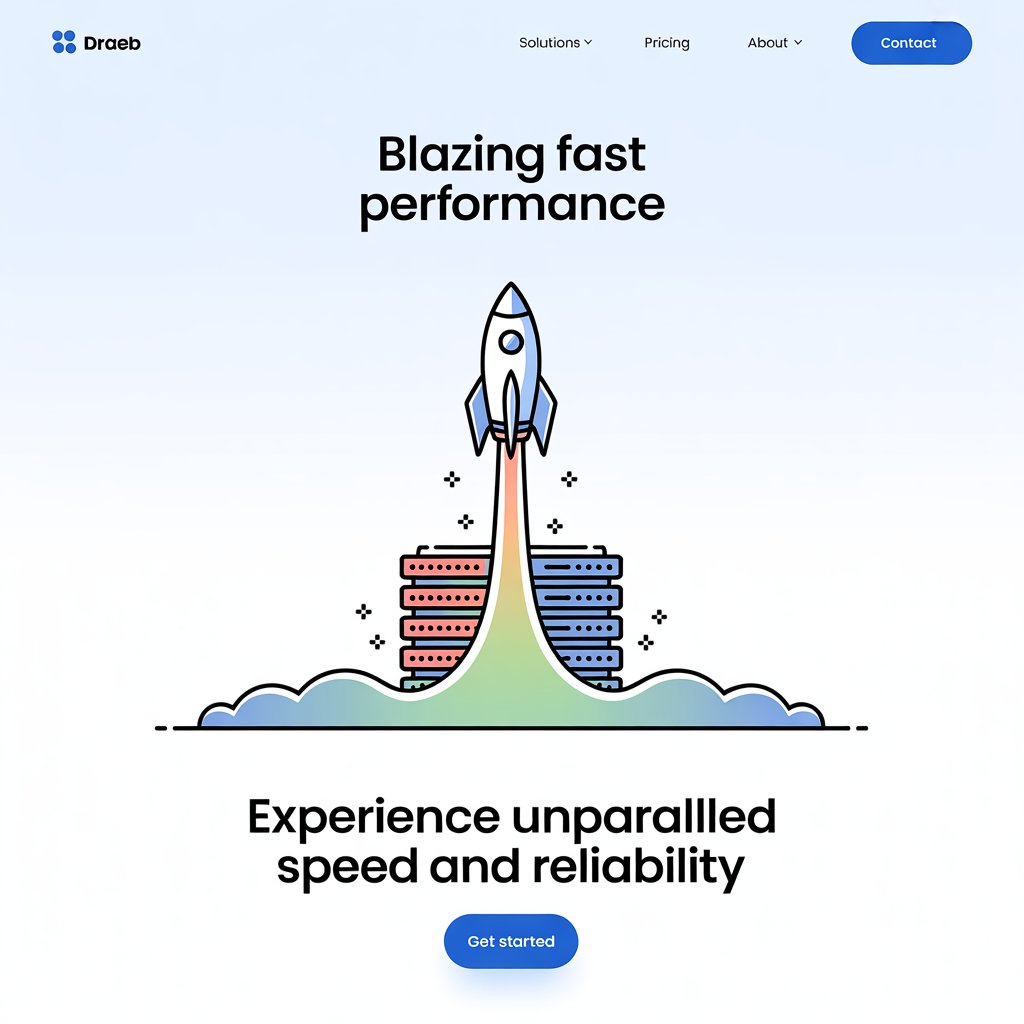

In the fast-paced digital world, website speed is everything. Whether you’re running an eCommerce store, a blog, or a business site, your visitors expect your website to load within 2–3 seconds. If it takes longer, chances are they will leave and never return. But what many website owners don’t realize is that hosting plays the biggest role in website speed.
Even if you have a beautifully designed site with optimized images and clean code, poor hosting can slow it down dramatically. In this guide, we’ll explain why website speed depends on hosting, the different types of hosting, and how you can choose the right one to boost performance and SEO.
Before diving into the connection between hosting and speed, let’s quickly understand what hosting is.
Website hosting is like the home of your website. All your files, images, databases, and content are stored on a hosting server. When a visitor opens your site, the browser sends a request to the server, and the server responds by delivering the content.
If the server responds quickly → your site loads fast.
If the server responds slowly → your site takes forever to load.
That’s why the quality of your hosting provider directly impacts your website speed.
TTFB (Time To First Byte) is the time taken by your hosting server to respond to the first request. A fast hosting server reduces TTFB, while a cheap or overloaded server increases it. High TTFB = slow website.
Not all hosting is equal. The type of hosting you choose can make or break your site’s speed.
Shared Hosting
Cheapest option.
Hundreds of websites share the same resources.
If one site uses too much bandwidth, others suffer.
Suitable for beginners, but not for serious businesses.
VPS (Virtual Private Server) Hosting
Dedicated portion of a server.
Faster than shared hosting.
Ideal for growing websites.
Dedicated Hosting
Entire server is yours.
Maximum speed and performance.
Best for large websites with heavy traffic.
Cloud Hosting
Uses multiple servers.
Highly scalable and reliable.
Perfect balance of speed, security, and cost.
Cheap hosting providers often put limits on bandwidth. When traffic increases, your site slows down or even goes offline. High-quality hosting ensures enough bandwidth to handle visitors smoothly.
Modern hosting companies offer SSD storage instead of traditional HDD. SSDs deliver much faster read/write speeds, which drastically improves website loading time.
Distance matters! If your server is in the US but your main audience is in Asia, it will take longer to load. The closer the server is to your visitors, the faster your website. That’s why many hosting providers offer multiple server locations.
Good hosting providers integrate caching and CDN (Content Delivery Network). A CDN distributes your website data across multiple global servers, reducing the load time for visitors worldwide.
A fast website is not built by design alone; it is powered by the strength of its hosting. No matter how beautiful your site may look, without reliable hosting, speed will always remain a distant dream.
Nobody likes waiting. A fast website keeps users happy and engaged, while a slow one increases bounce rate.
Google has officially stated that website speed is a ranking factor. A slow site can push you down in search results.
For eCommerce websites, even a 1-second delay can reduce conversions by 7%. Faster websites mean more sales and revenue.
If you want your site to load fast, follow these tips while selecting hosting:
✅ Go for SSD-based hosting instead of HDD.
✅ Choose a provider with 99.9% uptime guarantee.
✅ Make sure they offer built-in caching.
✅ Use a CDN (like Cloudflare) for global visitors.
✅ Pick VPS, Cloud, or Dedicated hosting if you expect high traffic.
✅ Check reviews and speed test results before buying.
For Beginners → Shared Hosting (affordable but limited).
For Small Businesses → VPS or Cloud Hosting.
For eCommerce → Cloud Hosting or Dedicated Hosting.
For High Traffic Websites → Dedicated Hosting with CDN.
Q1: Does hosting really affect website speed?
Yes, hosting has a direct impact. A slow server means a slow website, even if everything else is optimized.
Q2: Which hosting is fastest?
Cloud hosting and dedicated hosting are generally the fastest options.
Q3: Can I speed up my website without changing hosting?
Yes, you can optimize images, enable caching, and use a CDN, but if the hosting itself is weak, results will be limited.
Q4: Is free hosting reliable for speed?
No. Free hosting usually has very poor speed, low uptime, and limited resources.
Your website speed is a reflection of your hosting quality. While design, images, and plugins matter, nothing can replace the importance of a fast and reliable hosting provider. If you want better SEO rankings, improved user experience, and higher conversions, invest in high-quality hosting.
Remember: Slow hosting = slow website = lost visitors.
We Specialize in Creating Visually Stunning User Friendly And Highly Functional Websites That Help Businesses Stand Out in The Digital World…